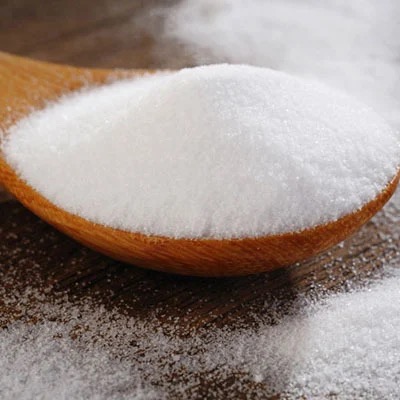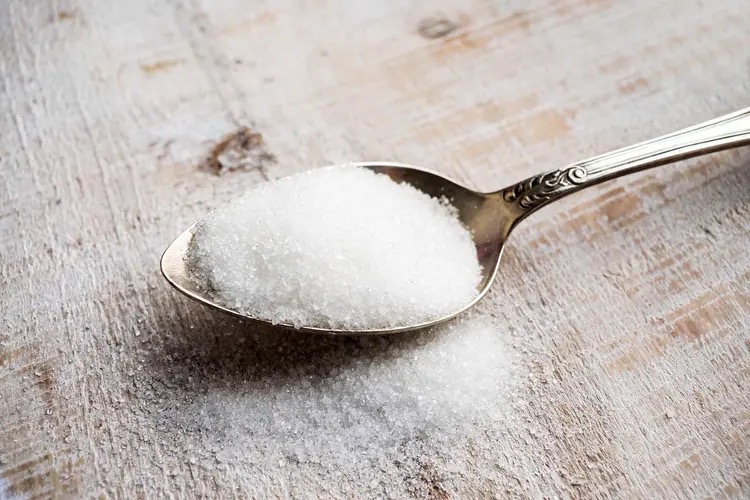Views: 222 Author: Sara Publish Time: 2025-11-23 Origin: Site








Content Menu
● Common Side Effects of Sucralose
>> 1. Impaired Glucose Metabolism and Diabetes Risk
>> 2. Gastrointestinal Issues and Inflammatory Bowel Diseases
>> 3. Leaky Gut Syndrome and Gut Bacteria Disruption
>> 4. Immune System Suppression and Cancer Risk
>> 5. Weight Gain and Metabolic Syndrome
>> 6. Toxic Compounds Formation When Heated
>> 7. Impact on Liver and Kidney Health
>> 8. Effects During Pregnancy and Early Development
● Metabolic and Hormonal Effects
● Neurological and Behavioral Considerations
● Frequently Asked Questions (FAQ)
>> 1. Does sucralose cause diabetes?
>> 2. Is sucralose safe for gut health?
>> 3. Can sucralose lead to weight gain?
>> 4. Are there cancer risks associated with sucralose?
>> 5. Can sucralose be safely used for cooking?
Sucralose, a popular artificial sweetener, is widely used as a sugar substitute in various food and beverage products due to its zero-calorie content and high sweetness level—approximately 600 times sweeter than sugar. While sucralose is favored for weight management and diabetes-friendly diets, its safety and impact on human health have raised concerns backed by recent scientific studies. This article explores the side effects of sucralose, its effects on metabolism, gut health, and potential long-term risks. We also provide a detailed FAQ section and a conclusion to guide consumers on the prudent use of sucralose.

Sucralose is an artificial sweetener derived from sugar through a process that replaces three hydrogen-oxygen groups with chlorine atoms. This alteration makes it indigestible by the human body, contributing zero calories. It is widely found in products such as diet sodas, yogurt, baked goods, ice creams, protein bars, and other sugar-free or reduced-calorie foods. While approved by the FDA and many regulatory agencies worldwide, research continues to assess its safety adequately.
Several studies suggest that consuming sucralose affects glucose metabolism adversely. Research published in the journal Diabetes Care demonstrated that sucralose ingestion leads to a 23% decrease in insulin sensitivity and an increase in peak plasma glucose levels. This alteration in insulin response raises concerns about its role in increasing the risk of type 2 diabetes. Furthermore, a 2020 study in Cell Metabolism showed that sucralose consumption in the presence of carbohydrates disrupts gut-brain glucose regulation, worsening glucose metabolism dysfunction.
Sucralose has been linked to gastrointestinal problems such as irritable bowel syndrome (IBS), ulcerative colitis, and Crohn's disease. A notable connection was found by Dr. Xin Qin's research, indicating an increased prevalence of IBS correlated with rising sucralose consumption. The sweetener may cause bloating and digestive discomfort due to its potential to promote inflammation in the gut lining.
Sucralose consumption damages the intestinal wall, leading to a condition known as leaky gut syndrome. This condition allows waste molecules to pass from the gut into the bloodstream, triggering immune reactions and inflammation. Studies also highlight that sucralose alters the gut microbiota composition, causing dysbiosis—an imbalance that negatively impacts digestion and overall health.

Recent research from North Carolina State University found that sucralose damages DNA in human blood cells and intestinal tissues, potentially increasing cancer risk. The activation of genes associated with inflammation and oxidative stress due to sucralose exposure further supports concerns about its carcinogenic potential.
Although marketed as a weight-loss aid, sucralose may paradoxically contribute to weight gain. Its impact on insulin sensitivity and glucose metabolism can promote fat storage. Studies link regular consumption of sucralose-containing diet sodas to metabolic syndrome—a cluster of conditions increasing heart disease and diabetes risk.
Sucralose is not heat stable and can generate potentially harmful compounds when exposed to high temperatures during cooking or baking. These compounds might have toxic and carcinogenic effects, raising safety concerns about its use in baked products.
Emerging studies link sucralose consumption to inflammation in liver tissues and potential renal inflammation through activation of inflammatory pathways. Animal studies show changes in liver gene expression after prolonged sucralose intake, which may contribute to liver diseases and kidney-related complications.
Research in animal models revealed that sucralose consumption during pregnancy can inhibit intestinal development in offspring, disturb gut microbiota, and induce low-grade inflammation. These developments suggest caution in sucralose intake for pregnant and lactating women, as early-life exposure could predispose offspring to metabolic and gut health issues.
Beyond glucose metabolism, sucralose influences hormone secretion related to appetite regulation. It can disrupt signals involving insulin, leptin, and ghrelin, essential for energy balance and hunger cues. This disruption may lead to increased food intake and difficulty in weight management despite the zero-calorie nature of sucralose.
Some evidence connects artificial sweeteners, including sucralose, with alterations in the gut-brain axis, potentially affecting mood and cognitive function. Changes in gut microbiota and inflammatory markers could influence brain chemistry, although human data are more limited and require further investigation.
Though outside direct health effects, sucralose is resistant to degradation and can persist in water systems after excretion, raising environmental concerns regarding aquatic life and broader ecological balance.
While sucralose offers the appeal of a zero-calorie sweetener, growing evidence raises significant concerns about its safety. Its potential adverse effects on glucose metabolism, digestive health, immune function, liver and kidney health, and possible cancer risks warrant cautious use. Consumers seeking healthier alternatives may consider natural sweeteners like stevia, raw honey, or maple syrup, which do not carry these risks. Moderation and informed choices remain key when incorporating sucralose into the diet.

Yes, evidence suggests that sucralose may impair insulin sensitivity and glucose metabolism, which could increase the risk of developing type 2 diabetes, especially with daily consumption of sucralose-sweetened products.
No, sucralose has been linked to gut health issues such as leaky gut syndrome, IBS, and bacterial imbalances. It can cause inflammation and damage the intestinal lining.
Despite being calorie-free, sucralose may contribute to weight gain by disrupting hormones related to appetite and metabolism.
Some studies show that sucralose damages DNA and promotes inflammation, which could increase the risk of certain cancers, although more research is needed for definitive conclusions.
Sucralose breaks down at high temperatures, forming toxic compounds. It is safer to avoid using sucralose in baking or cooking processes involving high heat.
[1](https://usrtk.org/sweeteners/sucralose-emerging-science-reveals-health-risks/)
[2](https://www.healthline.com/health-news/sucralose-a-common-artificial-sweetener-may-increase-cancer-risk)
[3](https://www.medicalnewstoday.com/articles/a-chemical-found-in-common-artificial-sweetener-may-cause-dna-damage-cancer)
[4](https://www.frontiersin.org/journals/nutrition/articles/10.3389/fnut.2024.1387646/full)
[5](https://pmc.ncbi.nlm.nih.gov/articles/PMC10971371/)
[6](https://pmc.ncbi.nlm.nih.gov/articles/PMC3856475/)
[7](https://www.sciencedirect.com/science/article/pii/S0278691517302818)
[8](https://www.healthline.com/nutrition/sucralose-good-or-bad)
[9](https://www.mayoclinic.org/healthy-lifestyle/nutrition-and-healthy-eating/in-depth/artificial-sweeteners/art-20046936)
[10](https://www.sciencedirect.com/science/article/pii/S1319016420301997)
